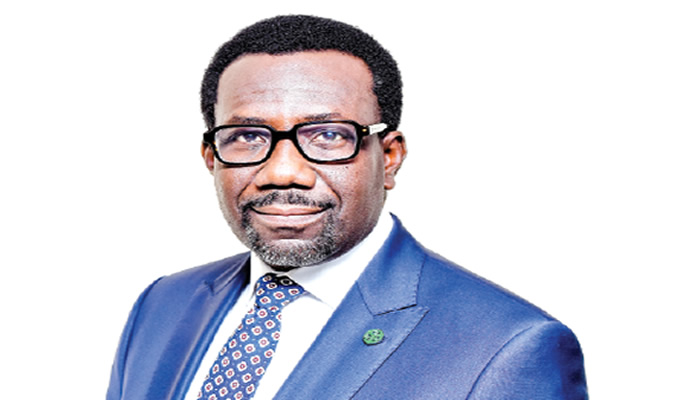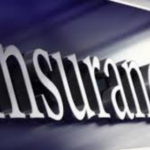
While motor insurance contributed 14.9 per cent of the total premium earned by local insurance companies in 2022, claims paid on the policy emerged as the highest in the non-life insurance business, NIKE POPOOLA reports
Third-party motor insurance policy is stipulated in the country’s statutory laws and it is among the compulsory insurance policies being implemented by the insurance regulator.
To advance underwriting in the sector, the National Insurance Commission increased premiums and claims paid on motor insurance policies with effect from January 1, 2023.
Industry operators have said this will have a positive effect on the revenue of the insurance companies and settlements that the insured will get in the event of a genuine loss.
According to the statutory laws, vehicle insurance includes covers for cars, trucks and motorcycles.
The Insurance Act 2003 mandates all motorists to have a minimum of third-party motor insurance policy in place.
Section 68 of the 2003 Insurance Act says, “No person shall use or cause or permit any other person to use a motor vehicle on a road unless a liability which he may thereby incur in respect of damage to the property of third parties is insured with an insurer registered under this Act.”
It also stipulated the liability for this type of insurance.
According to the Act, a person who contravenes the provisions of this section commits an offence and is liable on conviction to a fine of N250,000 or imprisonment for one year or both.
Despite the fact that the statutory laws of the country stipulate that no motorists should move on Nigerian roads without being in possession of genuine insurance certificates, many motorists have continued to show absolute disregard for this statutory requirement.
Operators have however preached the essence of ensuring voluntary compliance to enjoy its benefits when the need arises.
Motor insurance
NAICOM raised the premium for third-party motor insurance premium from N5,000 to N15,000.
It stated that the comprehensive motor insurance policy premium rate would not be less than five per cent of the sum insured after all rebates and discounts.
The third-party insurance was also inclusive of Ecowas Brown Card.
According to NACOM, the third party now attracts a claims limit of N3m from N1m.
It states in its circular that, “Own goods third party cover attracts N20,000 premium with N5m compensation.
“Staff bus attracts N20,000 premium with N3m compensation.
“Commercial (trucks, general cartage) attracts N100,000 premium with N5m compensation.
“Special types attract N20,000 premium with N3m compensation.
“Tricycle attracts N5,000 with N2m compensation.
“while motor cycle attracts N3,000 with N1m compensation.”
Benefits
The Chairman, Nigerian Insurers Association, Mr Segun Omosehin, notes that the risks and costs of purchasing vehicles have increased significantly since about 20 years when the third party premium was fixed at N5,000, a reason that necessitates an increase in premium to N15,000.
While noting that the costs of some expensive cars have increased above N100m, he says, “If a danfo rams into a land cruiser from the back, the minimum claim cannot be less than N5m no matter the adjustment.
“If we look at the reality of the value of what we have and the risks that is associated with those properties on the road and even houses, if a danfo rams into a building, to do any repairs, how much will we be talking of?”
He says the increase in the current liability of the policy is a step in the right direction.
According to him, it is important for motorists to ensure they get insurance covers for their vehicles/
The NIA chairman notes that Nigeria is a signatory to ECOWAS protocol around third-party liability in ECOWAS, which has been implemented by other West African countries but Nigeria delayed its implementation.
He notes that the ECOWAS wanted free movement of people across West Africa and in doing this, the insurance liability signed by the member countries created in movement with their vehicles should be universal.
Omosehin says that the new premium covers more risks that before.
He says, “If you don’t go outside Nigeria but you are driving in Nigeria and a vehicle comes from Ghana or Togo and it is going to Victoria Island or Lekki and you run into it, you have already created a third party liability across West Africa because the vehicle is not a Nigerian plate. So the liability, therefore, is no longer N1m but N3m.”
Premium
The commission revealed in its bulletin on the insurance industry report for 2022 financial period that motor insurance generated N62.2bn premium in the period under review.
Other classes of insurance which are fire that generated N93.6bn, general accident had N46.1bn cent, marine had N51bn, oil and gas had N125.7bn, miscellaneous had N39.7bn, while life insurance had N309.9bn.
The report says the industry’s gross premium income generated as at the fourth quarter of 2022 stood at N726.2bn, representing a growth proportion of about 36.3 per cent, quarter on quarter and indeed, about 17.8 per cent year on year.
Claims
According to NAICOM, the insurance claims reported during the fourth quarter stood at N318.2bn representing a 31.2 per cent QoQ growth. Possible attainment as a result of growing awareness and market expansion as well as consumer’s confidence.
“Insights into the non-life segment shows that motor insurance led with regards to claims settlement vis a vis gross claims reported at about 92.3 per cent signifying a nine points improvement as against its prior position,” it states.
Fire insurance was the least at about 46.3 per cent, the only class below average proportion.
All other portfolios of general accident insurance (80.7 per cent), Oil & Gas (51.6 per cent), Marine & Aviation (74.4 per cent), miscellaneous insurances (86.1 per cent) recorded a proportion above the average, of paid claims against gross claims reported.
Retention
In the period under review, industry wide average retention ratio stood at about 71.3 per cent, although, slightly a point lower than it held in the previous quarter and four points lower in comparison to same period (YoY).
Persistently, the life business retained about the same point of 93.3 per cent from its prior position of 93.8 per cent in quarter three.
“In the non-life segment which also took a similar pattern, motor insurance continued its lead as the highest retaining portfolio with a retention ratio of about 93.5 per cent also a point higher than its standing in the prior quarter,” the report says.
According to a report on ‘ECOWAS Brown Card Insurance Scheme @40’ released by the Nigerian Insurers Association, The Secretary-General, Nigerian National Bureau, Mrs Henrietta Anyanna, says before the Automatic Brown Card regime was adopted in Nigeria, travellers in Nigeria within the ECOWAS regions were paid N84m claims.
She says, “Claims worth more than N84m have been paid to Nigerian third-party victims of accidents as of December 31st, 2021, even in the absence of an Automatic Ecowas Brown Card regime.
“Imagine what the situation will be like after the official implementation of the Automatic Brown Card in Nigeria. The scheme is putting smiles on the faces of victims as well as transforming lives of the less privileged forever.”
The ECOWAS Brown Card insurance scheme was established on May 19, 1982, following the creation of the Economic Community of West African States.
The Commissioner for Insurance, NAICOM, Mr Sunday Thomas, says the N5,000 that was initially paid on third party had been implemented for about 20 years.
“The new rate is a restructuring of the premium to reflect the added value of access,” he says.
Explaining, he says the new rates offer more benefits to Nigerian vehicle owners and other road users driving within the country and in ECOWAS region because they were now covered for enlarged trips.
According to him, vehicle owners will not need to buy a separate Ecowas Brown Card cover for each trip embarked upon in the West African region.
He says, “If somebody was to go to Ghana or Togo five times last year, add the cost of Ecowas Brown Card each time to the third party without increasing the benefits. The benefits have increased now.”





